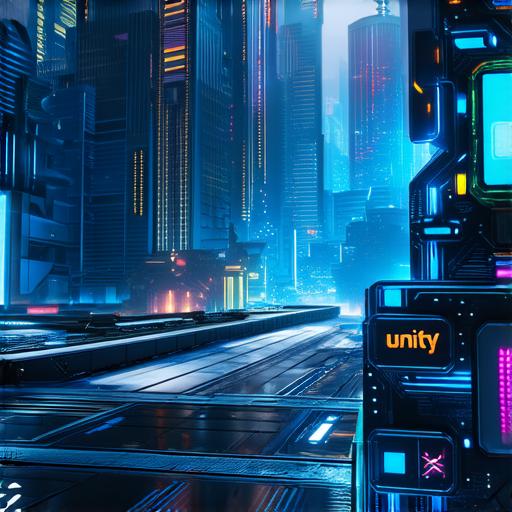Unity is a popular game engine that allows developers to create 2D and 3D games for various platforms, including PC, mobile, and consoles. In this article, we will explore the capabilities of Unity and determine if it is possible to create 3D games using this engine.
What is Unity?
Unity is a cross-platform game engine developed by Unity Technologies. It allows developers to create interactive applications for various platforms, including desktop and mobile devices, consoles, and virtual reality (VR) and augmented reality (AR) systems. The engine provides a range of tools and features that enable developers to create high-quality games with minimal coding.
Advantages of Unity
Unity has several advantages that make it an attractive choice for game development:
- Easy to Use: Unity is designed to be user-friendly, even for those who have no programming experience. The engine provides a range of tools and features that allow developers to create games quickly and efficiently.
- Cross-Platform Compatibility: Unity supports multiple platforms, including PC, mobile, consoles, and VR/AR systems. This means that game developers can reach a wide audience with a single game engine.
- Large Community: Unity has a large community of developers who contribute to the platform’s growth and development. This community provides valuable resources, such as tutorials, plugins, and assets, that can help game developers create better games faster.

Creating 3D Games with Unity
Unity supports the creation of 3D games through its built-in tools and features. Some of these features include:
- Scene Editor: The scene editor allows developers to create, edit, and manipulate 3D scenes in real-time. It provides a range of tools for creating objects, placing them in the scene, and adjusting their properties.
- Physics Engine: Unity’s physics engine simulates realistic physical interactions between objects in the game world. This allows developers to create games with realistic physics and collision detection.
- Animation Tools: Unity provides a range of tools for creating animations, including keyframe animation, motion capture, and state machines. These tools allow developers to create realistic character movements and actions.
- Scripting Support: Unity supports multiple scripting languages, including C and JavaScript. This allows developers to write custom code to control game behavior and interact with the game world.
Conclusion
In conclusion, Unity is a powerful game engine that provides developers with the tools and features needed to create high-quality 3D games for multiple platforms. With its easy-to-use interface, cross-platform compatibility, and large community, Unity is an attractive choice for game development. While it may not be suitable for all types of games, it is definitely possible to create 3D games using Unity.
